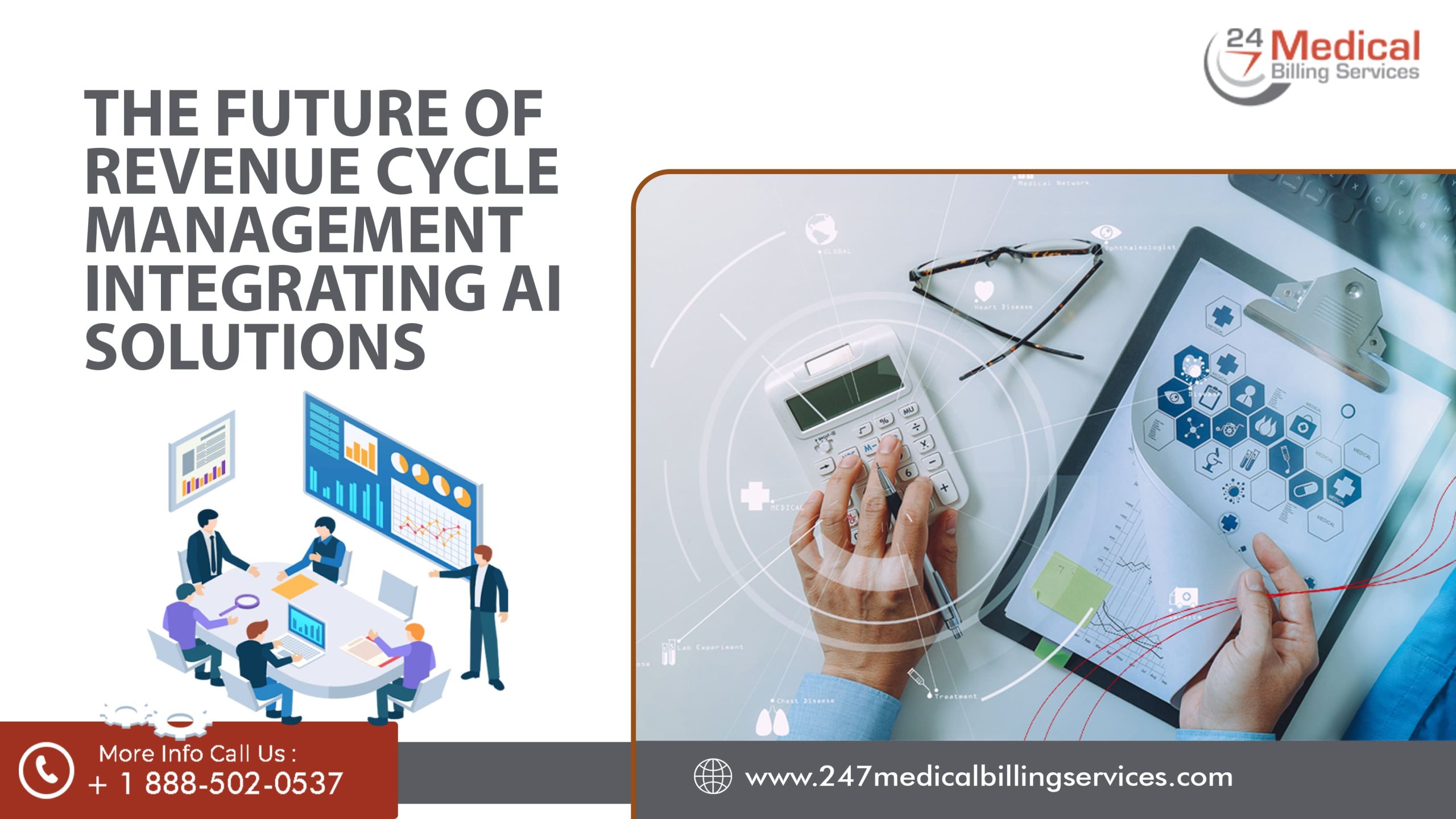
The Future of Revenue Cycle Management Integrating AI Solutions
The healthcare industry is continuously evolving, and one area witnessing significant transformation is Revenue Cycle Management (RCM). The integration of artificial intelligence (AI) and automated workflows is poised to revolutionize RCM by enhancing operational efficiency, reducing costs, and improving financial outcomes for healthcare providers. As third-party payer denials and collection costs rise, providers are increasingly turning to AI-driven solutions to streamline their revenue cycle processes.
Revenue Cycle Management Integrating AI Solutions
Currently, 46% of hospitals and health systems are using AI in their RCM operations, as per a recent HFMA Pulse Survey. This adoption is part of a broader trend towards automation in healthcare, with 74% of hospitals implementing revenue-cycle automation, including RPA and AI. While AI in RCM is focused on specific functions now, its potential for broader integration is significant.
The Potential of AI to Innovate and Disrupt RCM
In 2023, McKinsey highlighted AI's potential in healthcare revenue cycle management (RCM), citing substantial opportunities for innovation and efficiency gains. Automation through AI can reduce administrative burdens and costs significantly, with generative AI already showing productivity boosts of 15% to 30% in call centers. Healthcare organizations are adopting RPA, NLP, and AI to automate tasks like generating appeal letters and managing prior authorizations, though broader applications for front-end processes and data validation are still evolving.
Key AI Applications in Revenue Cycle Management
Automated Coding and Billing
- AI-driven NLP: Automatically assigns billing codes from clinical documentation, reducing manual effort and errors. This not only enhances accuracy but also speeds up the billing process.
- Claim Scrubbing: AI identifies and corrects claim errors before submission, thereby reducing the number of denials and ensuring faster reimbursements.
Predictive Analytics for Denial Management
- AI Predictions: Anticipates likely denials and their causes, allowing healthcare providers to address potential issues proactively. This proactive approach can significantly reduce the number of denied claims.
- Machine Learning Models: Analyze patterns in claim denials to implement corrective actions and improve future claim submissions.
Revenue Forecasting and Financial Planning
- AI-powered Analytics: Provides accurate revenue forecasts, aiding in budget planning and resource allocation. By predicting revenue trends, healthcare providers can make more informed financial decisions.
- Financial Simulations: Uses AI to simulate various financial scenarios, helping healthcare organizations to plan for different outcomes and make strategic decisions.
Patient Payment Optimization
- Personalized Payment Plans: AI tailors payment plans based on patients’ financial situations, making it easier for patients to manage their medical expenses. This personalization improves patient satisfaction and increases the likelihood of timely payments.
- Chatbots: Assist patients with billing queries and reminders, improving communication and reducing administrative workload.
Enhanced Data Security and Compliance
- Fraud Detection: AI identifies and prevents fraudulent activities, ensuring the security of patient data and protecting the organization from potential financial losses.
- Compliance Updates: Automatically updates coding standards and guidelines, helping healthcare providers stay compliant with ever-changing regulations.
Operational Efficiency
- RPA: Automates repetitive tasks, freeing up staff to focus on more complex duties. This not only improves efficiency but also enhances job satisfaction among staff.
- Resource Optimization: AI improves scheduling and resource allocation, ensuring that healthcare providers can deliver high-quality care while managing their resources effectively.
Challenges and Considerations in Implementing AI
While the benefits of integrating AI into RCM are clear, there are challenges and considerations that healthcare providers must address:
- Data Quality: The effectiveness of AI depends on the quality of the data it processes. Ensuring accurate and comprehensive data collection is crucial for AI to deliver reliable results.
- Staff Training: Implementing AI requires training staff to understand and effectively use new technologies. Ongoing education and support are essential for a smooth transition.
- Cost of Implementation: The initial cost of implementing AI and automated systems can be high. However, the long-term savings and efficiency gains often justify the investment.
- Regulatory Compliance: Healthcare providers must ensure that their AI solutions comply with all relevant regulations and standards to avoid legal and financial repercussions.
Conclusion
The integration of AI in RCM is set to transform the healthcare industry, offering solutions that enhance efficiency, reduce administrative burdens, and improve financial outcomes. Our 24/7 Medical Billing Services leverage cutting-edge AI solutions to optimize your operations, reduce costs, and improve cash flow. As the technology continues to advance, its applications in RCM will likely expand, providing even greater benefits to healthcare providers.
By staying informed about the latest trends and advancements in AI, healthcare organizations can leverage these technologies to optimize their revenue cycle processes and achieve better financial performance. Embracing AI-driven solutions is not just a strategic advantage but a necessity for modern healthcare providers looking to thrive in an increasingly complex and competitive environment.


.png)
